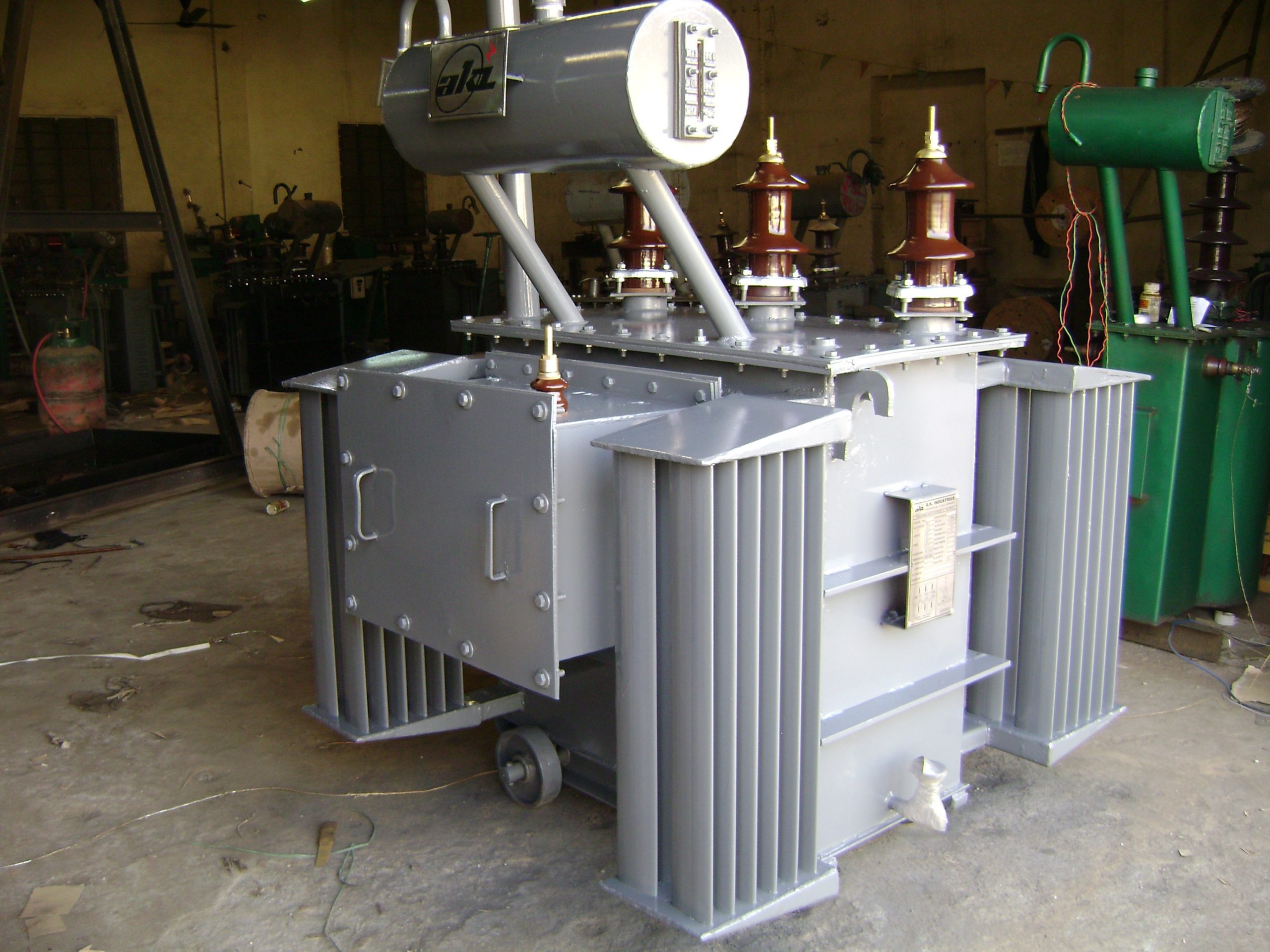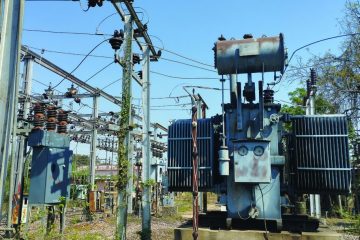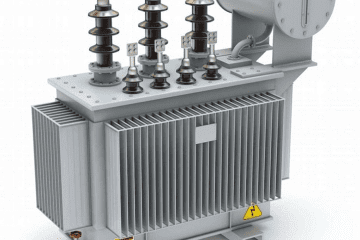Energy efficiency has become a fundamental concern in the electrical industry, particularly in Nigeria, where power reliability and cost savings are critical. Transformers play a crucial role in power distribution systems, and their efficiency directly impacts energy consumption, operational costs, and system reliability. One of the most effective ways to enhance transformer performance and minimize energy losses is through proper insulation.
At Just HardRich Global Resources Limited, we specialize in Electrical Power and Control Engineering, providing top-notch solutions to improve the energy efficiency, durability, and reliability of transformers. This article explores the role of insulation in transformer efficiency, the most effective insulation materials, and cutting-edge insulation techniques that can help optimize transformer performance.
The Importance of Insulation in Transformers
Transformer insulation serves as the backbone of operational safety, efficiency, and longevity. It ensures electrical separation between different parts, prevents breakdowns, and enhances heat dissipation. When insulation is substandard or deteriorates, transformers experience higher energy losses, overheating, and potential failures.
Insulation plays several critical roles, including:
- Preventing current flow between windings: Transformers contain primary and secondary windings that must be electrically insulated to prevent short circuits and electrical faults.
- Reducing current leakage to the core and metal parts: Electrical leakage can cause severe power losses and hazardous conditions if insulation is inadequate.
- Protecting windings from mechanical stress and vibrations: Transformers are subject to continuous mechanical vibrations and operational stresses that can degrade the insulation over time.
- Aiding in heat dissipation: Heat is a major byproduct of transformer operation. Effective insulation enhances cooling, thereby reducing thermal stress and improving efficiency.
Understanding Transformer Losses and the Role of Insulation
Transformers experience two primary types of losses:
- Copper Losses (Joule Losses): These losses occur due to the electrical resistance of windings. The higher the resistance, the greater the energy dissipation in the form of heat.
- Core Losses (No-Load Losses): These occur due to hysteresis and eddy currents within the transformer core. Even when no load is applied, energy is wasted in this manner.
High-quality insulation helps reduce both losses by minimizing current leakage, improving heat dissipation, and maintaining electrical integrity. This, in turn, leads to higher energy efficiency, reduced operational costs, and extended transformer life.
Insulation Classes and Their Impact on Efficiency
Transformer insulation materials are classified based on their thermal endurance, meaning the maximum temperature they can withstand without degradation. Selecting the right insulation class is essential for optimizing transformer performance. The major insulation classes, as per the IEC 60085 standard, include:
- Class A (105°C) – Basic insulation, often used in older designs and low-power applications.
- Class E (120°C) – Moderate endurance, used in small distribution transformers.
- Class B (130°C) – Commonly used in power transformers, offering improved heat resistance.
- Class F (155°C) – High-performance insulation for medium and large transformers.
- Class H (180°C and above) – Advanced insulation for extreme conditions and industrial applications.
Why Insulation Class Matters
- Higher Efficiency: Higher insulation classes enable transformers to handle greater power loads while maintaining energy efficiency.
- Compact Transformer Design: With better insulation, transformers can be built smaller without compromising performance.
- Longer Operational Life: High-class insulation extends the transformer’s lifespan by resisting heat-induced degradation.
At Just HardRich Global Resources Limited, we help industries select the optimal insulation class based on power requirements, environmental factors, and cost considerations to ensure maximum efficiency.
High-Performance Insulation Materials for Transformers
Choosing the right insulation material is just as important as selecting the correct insulation class. Advanced materials enhance dielectric strength, resist thermal degradation, and improve mechanical durability.
Some of the most high-performance insulation materials include:
- Nomex Paper:
- A high-temperature aramid paper used in high-voltage transformers.
- Excellent dielectric strength and resistance to heat, moisture, and mechanical stress.
- Mylar Film:
- A polyester film with strong electrical insulation properties.
- Used in layer insulation between windings to prevent short circuits.
- Kapton Film:
- A polyimide film that retains insulation properties at temperatures above 400°C.
- Ideal for compact transformers requiring thin but robust insulation.
- Insulating Papers and Boards:
- Available in various thermal classes (A to H), offering cost-effective insulation solutions.
- Commonly used in combination with insulating varnishes and resins.
- Insulating Liquids (Transformer Oil & Synthetic Fluids):
- Help dissipate heat and enhance electrical insulation in oil-filled transformers.
- Modern alternatives like silicone-based and biodegradable fluids offer better environmental sustainability and efficiency.
Recommended Insulation Techniques for Enhanced Transformer Efficiency
While material selection is critical, proper application techniques ensure long-lasting transformer efficiency. Below are some recommended insulation methods:
1. Separate Windings for Reduced Losses
Separating primary and secondary windings with an insulating barrier minimizes parasitic capacitance and associated energy losses.
2. Multi-Layer Insulation for Better Dielectric Strength
Using multiple layers of insulation between windings and turns enhances dielectric resistance and reduces the risk of electrical breakdown.
3. Vacuum Impregnation for Improved Insulation Integrity
Applying insulating varnishes and resins under vacuum conditions eliminates air pockets, which can lead to partial discharges. This process ensures homogeneous insulation and long-term reliability.
4. Electrostatic Shielding to Minimize Capacitive Coupling
Adding conductive shielding between windings reduces capacitive coupling, thus minimizing stray losses and enhancing efficiency.
5. Efficient Cooling Systems to Maintain Insulation Performance
Overheating degrades insulation materials and reduces efficiency. Some effective cooling methods include:
- Oil Cooling: Traditional, effective, and widely used in power transformers.
- Air Cooling: Used in dry-type transformers, where ventilation is critical.
- Water Cooling: Advanced cooling for high-power industrial transformers.
Innovative Trends in Transformer Insulation
The electrical industry is continuously evolving, and new insulation technologies are emerging to improve transformer efficiency. Some noteworthy trends include:
- Nanotechnology-Based Insulation: Nano-coatings provide higher thermal resistance and superior dielectric properties.
- Eco-Friendly Insulating Oils: Renewable, biodegradable oils offer better environmental sustainability.
- Smart Sensors for Insulation Monitoring: IoT-based sensors help monitor insulation health in real time, reducing maintenance costs and preventing failures.
At Just HardRich Global Resources Limited, we integrate the latest insulation advancements into our electrical engineering solutions to ensure top-tier energy efficiency and reliability.
Conclusion
Proper insulation is the key to improving the energy efficiency of transformers. Selecting high-performance insulation materials, using the right thermal class, and employing advanced insulation techniques can significantly reduce energy losses, extend transformer lifespan, and enhance system reliability.
As Nigeria continues to advance in power infrastructure, industries must prioritize transformer efficiency to reduce energy costs and improve operational stability. Just HardRich Global Resources Limited is the leading Electrical Power and Control Engineering Company committed to delivering innovative, efficient, and reliable transformer solutions tailored to meet modern energy demands.
For expert consultation and top-tier transformer solutions, contact us today:
📞 +234 803 255 9417
🌐 www.justhardrich.com.ng




